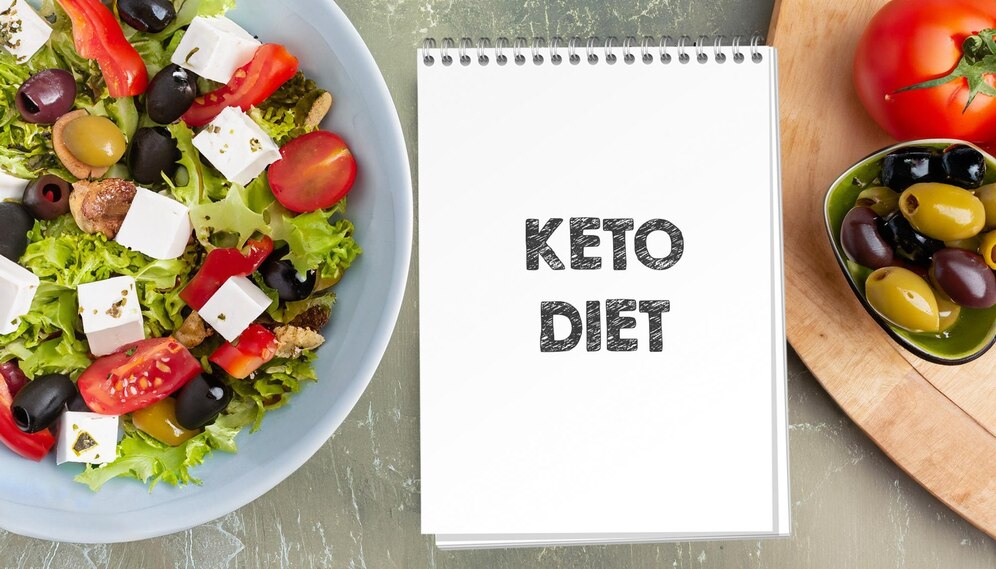In recent years, the vegan diet has gained significant popularity as more people become aware of the health and environmental benefits of plant-based eating. A vegan diet excludes all animal products, including meat, dairy, eggs, and honey, and focuses on consuming fruits, vegetables, grains, legumes, nuts, and seeds. This article explores the numerous health benefits of a vegan diet, comparing it to a vegetarian diet and highlighting the importance of nutrient balance.
Vegan vs. Vegetarian
While both vegan and vegetarian diets exclude meat, fish, and poultry, the main difference lies in excluding all animal products in a vegan diet, including dairy, eggs, and honey. Vegetarians may consume these animal-derived products. Healthwise, veganism tends to be stricter and may require more careful planning to ensure adequate nutrient intake compared to a vegetarian diet.
Get More Nutrient through Vegan
A well-planned vegan diet can provide all the necessary nutrients for good health. Plant-based foods are rich in essential vitamins, minerals, and antioxidants. Key nutrients often found in abundance in vegan diets include fiber, vitamin C, vitamin E, magnesium, and potassium. However, special attention should be paid to nutrients like vitamin B12, iron, calcium, and omega-3 fatty acids, which can be less abundant in vegan diets.
Lose Excess Weight
One of the benefits of a vegan diet is its potential for weight loss. Vegan diets tend to be lower in calories and saturated fats compared to omnivorous diets.
Additionally, the high fiber content of plant-based foods can promote feelings of fullness, reducing overall calorie intake. Studies have shown that individuals following a vegan diet often have lower body mass indexes (BMIs) and lower rates of obesity compared to non-vegans.
Reduce Diabetes Risk
Following a vegan diet may help reduce the risk of developing type 2 diabetes. Plant-based diets are rich in fiber, antioxidants, and complex carbohydrates, which can improve insulin sensitivity and blood sugar control.
Studies have shown that vegans have a lower risk of developing type 2 diabetes compared to non-vegans, and vegan diets can be effective in managing diabetes in those already diagnosed.
Prevent Cancer
A vegan diet rich in fruits, vegetables, whole grains, and legumes may help reduce the risk of certain types of cancer. Plant-based foods are rich in antioxidants and phytochemicals, which have been shown to have cancer-fighting properties. Studies suggest that vegan diets may be associated with a lower risk of developing cancers such as colorectal, breast, and prostate cancer.
Lower Heart Disease Risk
Following a vegan diet can significantly lower the risk of heart disease. Vegan diets are naturally low in saturated fats and cholesterol, which are known contributors to heart disease. Plant-based diets are also rich in fiber, antioxidants, and other nutrients that can help lower blood pressure, improve cholesterol levels, and reduce inflammation, all of which are important for heart health.
Reduce Arthritis Pain
The anti-inflammatory properties of plant-based foods may help reduce arthritis pain and improve joint health. Studies have shown that a vegan diet can lead to a reduction in symptoms such as joint pain, swelling, and stiffness in individuals with arthritis. Additionally, the weight loss associated with a vegan diet can further alleviate pressure on the joints, improving mobility and overall quality of life.
Vegan Recipes to Try

Incorporating more plant-based meals into your diet can be delicious and satisfying. Try these vegan recipes to experience the benefits of a plant-based diet:
1. Vegan Lentil Soup: A hearty and nutritious soup made with lentils, vegetables, and spices.
2. Roasted Vegetable Salad: A colorful salad made with roasted vegetables, mixed greens, and a tangy dressing.
3. Chickpea and Spinach Curry: A flavorful curry made with chickpeas, spinach, tomatoes, and spices.
4. Quinoa Stuffed Bell Peppers: Bell peppers stuffed with quinoa, black beans, corn, and spices, then baked to perfection.
Vegan Diet Advantages and Disadvantages
While there are many benefits to following a vegan diet, there are also some potential drawbacks. Advantages include ethical considerations regarding animal welfare, environmental benefits due to reduced greenhouse gas emissions, and potential health benefits. However, disadvantages may include the need for careful planning to ensure adequate nutrient intake, social challenges, and the potential for nutrient deficiencies if not properly managed.
Benefits of Being Vegan for a Month
Even a short-term commitment to a vegan diet can have positive effects on your health and well-being. Many people report increased energy levels, improved digestion, clearer skin, and weight loss after just a few weeks of following a vegan diet. Additionally, trying a vegan diet for a month can help you explore new foods and cooking methods, expanding your culinary horizons.
Long-Term Effects of Vegan Diet
Adopting a vegan diet can have long-term effects on your health and the environment. Over time, a vegan diet can help lower your risk of developing chronic diseases such as heart disease, diabetes, and certain types of cancer.
From an environmental perspective, reducing your consumption of animal products can help lower greenhouse gas emissions, reduce water usage, and mitigate deforestation associated with animal agriculture.
Benefits of Veganism on the Environment
One of the key benefits of veganism is its positive impact on the environment. Animal agriculture is a major contributor to greenhouse gas emissions, deforestation, and water pollution. By choosing a vegan diet, you can significantly reduce your carbon footprint and help protect the planet for future generations.
Vegan Benefits for Skin
A vegan diet can have positive effects on your skin health. Plant-based foods are rich in antioxidants, vitamins, and minerals that can help nourish your skin from the inside out. Many people report clearer, brighter skin after adopting a vegan diet, as well as a reduction in skin conditions such as acne, eczema, and psoriasis.
Immediate Benefits of Plant-Based Diet
Switching to a plant-based diet can lead to immediate changes in your health and well-being. Many people experience increased energy levels, improved digestion, and better sleep after just a few days of following a plant-based diet.
Additionally, plant-based diets are often more sustainable and environmentally friendly than animal-based diets, making them a great choice for both your health and the planet.
Vegan Diet Risks
While a vegan diet can be healthy, it is important to be aware of potential risks and challenges. Vegan diets can be low in certain nutrients, including vitamin B12, iron, calcium, and omega-3 fatty acids. Vegans need to plan their diets carefully to ensure they are getting all the necessary nutrients. Additionally, some people may experience social challenges or difficulty finding vegan options when dining out.
Conclusion
In conclusion, the health benefits of a vegan diet are numerous and well-supported by scientific research. From reducing the risk of chronic diseases to improving skin health and aiding in weight loss, adopting a vegan diet can have positive effects on your overall health and well-being.
However, it is important to plan your diet carefully to ensure you are getting all the necessary nutrients. With the right approach, a vegan diet can be a delicious, nutritious, and sustainable way to eat for both your health and the planet.









“Hello there! I recently noticed that you’ve taken the time to visit my website, and I wanted to express my gratitude by returning the favor. As I’m constantly seeking ways to improve my site, I believe it would be beneficial to incorporate some of your ideas into my design and content strategy. Your input would be greatly appreciated, and I’m open to any suggestions you may have. Thank you for your interest, and I look forward to hearing from you!”
Thank you for reaching out and showing interest in my website. I’m thrilled to hear that you’re open to incorporating ideas from visitors like me. I’d love to share some suggestions and insights with you. Could you tell me more about your target audience and the specific goals you have in mind for your website’s design and content? This will help me tailor my suggestions to best suit your needs.
We are looking forward to collaborating with you!
Your article helped me a lot, is there any more related content? Thanks!